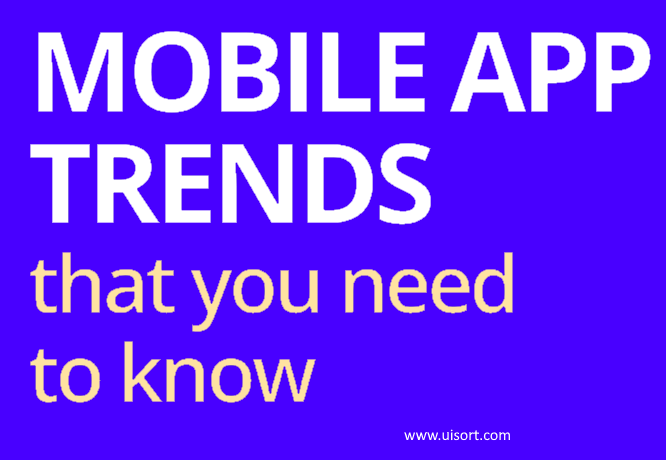Mobile app development is a dynamic field, and trends evolve as technology advances. As of my last knowledge update in January 2022, here are some mobile app development trends that were gaining prominence. Keep in mind that the landscape may have evolved since then:
1. 5G Technology: The rollout and widespread adoption of 5G technology enable faster download/upload speeds and lower latency, opening up possibilities for more complex and data-intensive applications.
2. Augmented Reality (AR) and Virtual Reality (VR): Integration of AR and VR technologies into mobile apps for enhanced user experiences, especially in gaming, education, and retail.
3. Internet of Things (IoT) Integration: Connecting mobile apps with IoT devices to facilitate communication and control of smart devices, such as home automation systems, wearables, and industrial sensors.
4. Cross-Platform App Development: Continued emphasis on cross-platform frameworks like React Native, Flutter, and Xamarin, allowing developers to build apps that work on both iOS and Android with a single codebase.
5. Artificial Intelligence (AI) and Machine Learning (ML): Integration of AI and ML into mobile apps for features like personalized recommendations, predictive analysis, and natural language processing.
6. Mobile Wallets and Payment Integration: Expansion of mobile payment options and the integration of digital wallets into apps for seamless and secure transactions.
7. Chatbots and Conversational Interfaces: Increasing use of chatbots and conversational interfaces for better user engagement and customer support within mobile applications.
8. Edge Computing: Utilizing edge computing to process data closer to the source (on the device or edge server) rather than relying solely on cloud services, improving performance and reducing latency.
9. Progressive Web Apps (PWAs): Development of Progressive Web Apps that combine the best features of web and mobile applications, providing a more engaging and responsive user experience.
10. Biometric Authentication: Growing use of biometric authentication methods, such as fingerprint scanning and facial recognition, for enhanced security in mobile applications.
11. Sustainability and Green Tech: Increasing awareness of environmental impact, leading to the development of mobile apps with features focused on sustainability and eco-friendly practices.
12. Low-Code/No-Code Development: The rise of low-code and no-code development platforms, enabling users with varying technical expertise to create mobile apps without extensive coding knowledge.
13. Health and Fitness Apps: Continued growth in health and fitness apps, especially those integrating wearables and providing features like workout tracking, health monitoring, and personalized coaching.
It’s essential to stay updated with the latest developments in the mobile app development industry to ensure that your applications remain competitive and aligned with user expectations. Keep in mind that the trends mentioned here are based on information available up to January 2022, and the landscape may have evolved since then.
If you would like to develop any new mobile apps with above latest technologies sure we are here to support for you business growth. connect us
